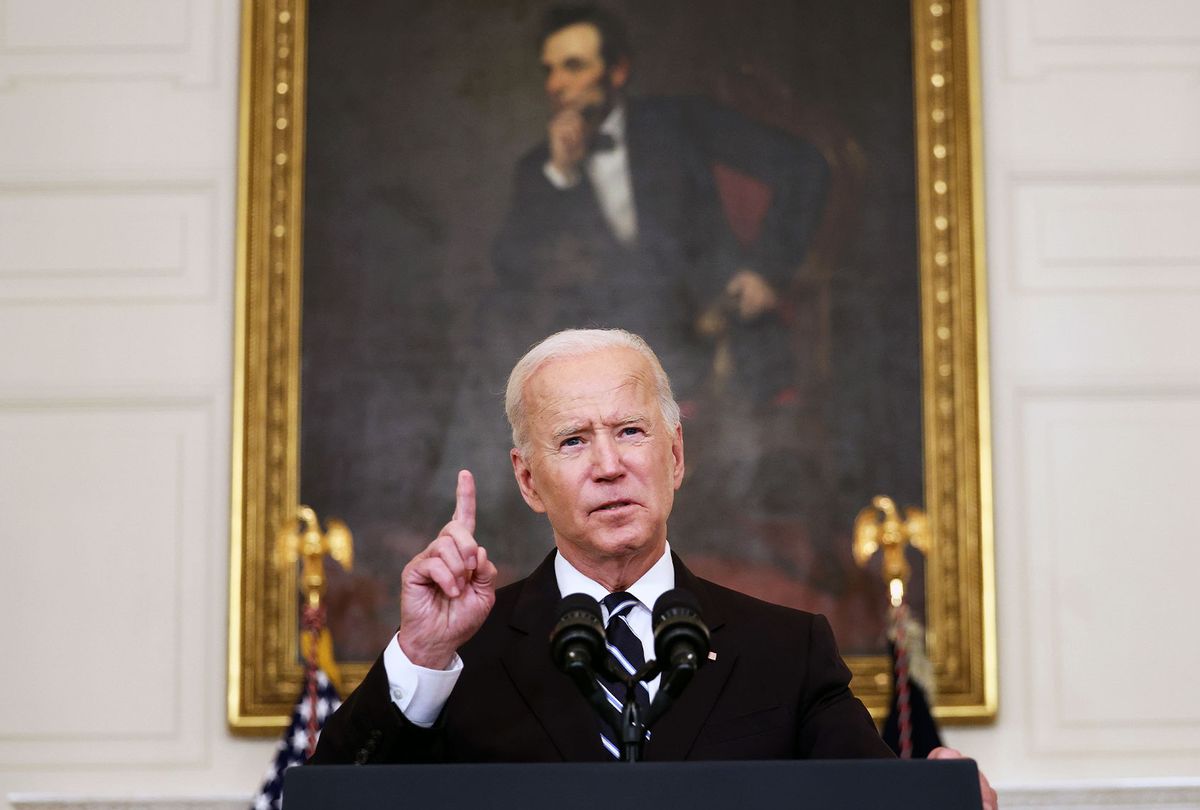President Joe Biden delivered his first United Nations General Assembly address as president on Tuesday, with rallying cries of global cooperation in the midst of the many crises facing the world in recent months.
"To deliver for our own people, we must also engage deeply with the rest of the world," he said to the world leaders and diplomats watching from New York and around the world, signaling a stark contrast with his predecessor's isolationist ideals.
But this call for global unity has taken on new meaning following the turbulent year that Biden has faced since taking office in January. With the ongoing coronavirus pandemic and a vaccine rollout rife with inequality, the undeniable effects of climate change, increasing cyber threats and the chaotic U.S. withdrawal from Afghanistan, — to name a few — Biden sought to remind world leaders of America's historic leadership role within the international community.
And reiterated his belief in the power of democracy. "No matter how challenging or complex the problems we're going to face, government by and for the people is still the best way to deliver for all of our people," he said.
And yet, Biden's efforts to reassert himself as a stabilizing force came at a time when many key allies have had doubts about the president's word.
Last week, Biden announced that the U.S. will join a multilateral security agreement with Australia and Britain — dubbed AUKUS — to build a fleet of eight nuclear-powered submarines. This new strategic partnership, however, resulted in Australia backing out of a $66 billion contract with France. Signed in 2016, the two countries had agreed to build 12 conventional diesel-electric submarines.
France now claims that they were not forewarned of Australia's intentions to sign onto the new partnership, setting off a diplomatic crisis between France, Australia and the U.S.
"The fact that for the first time in the history of relations between the United States and France we are recalling our ambassador for consultations is a serious political act, which shows the magnitude of the crisis that exists now between our countries," French Foreign Minister Jean-Yves Le Drian told France 2 over the weekend.
Since then, several top European Union leaders have expressed their dismay at President Biden's actions, accusing him of disloyalty to the transatlantic alliance.
In an interview with CNN, European Commission President Ursula von der Leyen called U.S. treatment of France "not acceptable," and expressed her concern over lack of communication about the new security strategy in the Indo-Pacific. "We want to know what happened and why. And therefore you first clarify that before you keep going with business as usual."
These sentiments were echoed by European Council President Charles Michel.
"The elementary principles for an alliance are loyalty and transparency," he said in comments to reporters in New York prior to the UNGA, as reported by Politico. "We are observing a clear lack of transparency and loyalty."
But as Biden used his speech to try to reassure his allies following one diplomatic crisis, he also addressed another. The president indicated his desire to move forward from the chaotic U.S. withdrawal from Afghanistan, looking forward to better ways of handling conflict.
"As we close this period of relentless war, we're opening a new era of relentless diplomacy," he said. "Of using the power of our development aid to invest in new ways of lifting people up around the world. Of renewing and defending democracy."
He ended his address with an urgent plea to his fellow leaders, and a call to action to face the challenges rocking the global community: "We cannot afford to waste anymore time. Let's get to work. Let's make our better future, now. We can do this. It's within our power and capacity."



Shares